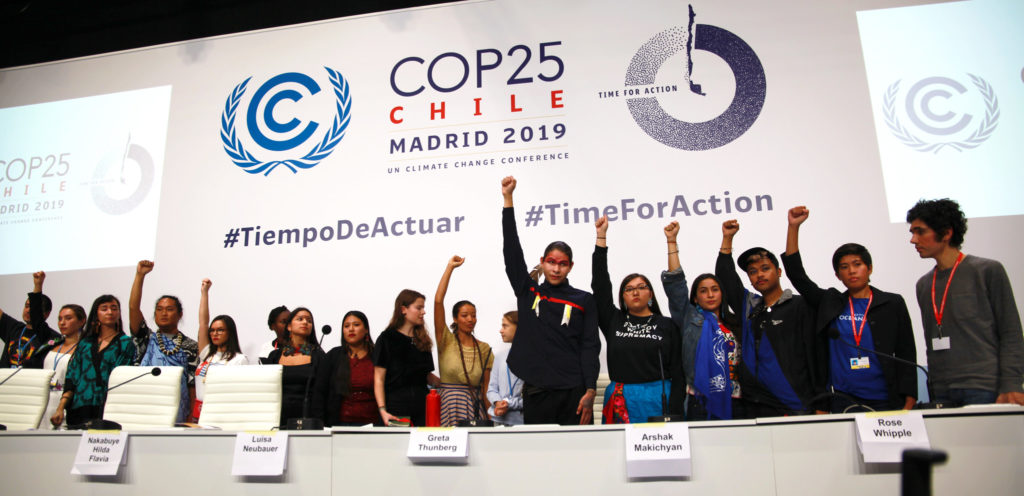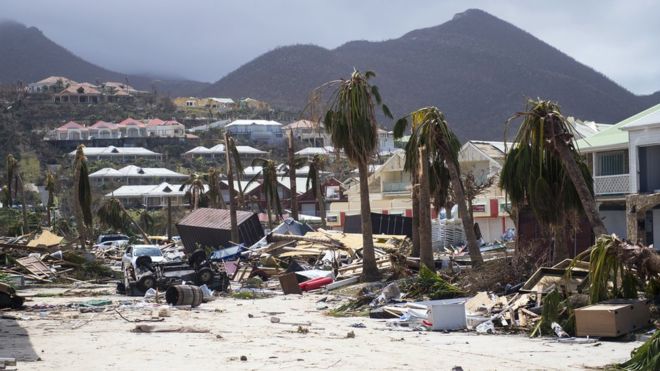
As a child, I was confused by the idea that Santa Claus delivers millions of gifts to the good girls and boys of the world, all in one night. Was he magical? Was he some sort of divinity? These were the questions I had for him if we ever met. Twenty plus years later, all I really want to ask of Santa is one favour; please give your secret speed magic to the negotiators at the 25th session of the United Nations’ climate talks (COP25).
After week one of the negotiations, the common consensus in the corridors and meeting rooms is that the progress of the climate negotiations on key issues is too slow. Negotiators from certain countries, are dragging their feet.
With the Rule Book for the Paris Agreement set, COP25 opens a new phase in climate negotiations for enacting the demands from the street and Science with more ambitious emission reductions. So, where is the urgency?
Critical climate issues for the Caribbean
According to the 1.5 to Stay Alive campaign in the Caribbean, supported by PANOS Caribbean, the Caribbean Community (CARICOM), the Caribbean Community Climate Change Centre, the Caribbean Development Bank, the Government of St. Lucia, and the Organization of Eastern Caribbean States, the following are the key issues for the Caribbean during COP25:
- Securing an ambitious outcome from COP 25 that creates the conditions for success at COP 26. Many countries are comfortable with their submitted Nationally Determined Contributions (NDCs) and are ready to carry on with another business as usual COP. However, Caribbean countries are doing everything they can as a group to ramp up climate ambitions going into 2020.
- Supporting the Alliance of Small Island States (AOSIS) demands from the review of the Warsaw International Mechanism (WIM) on loss and damage. With low levels of ambition and continued escalation of greenhouse gas emissions, the WIM needs to be able to support the small island states, they are already experiencing intense impacts of climate change and science shows the predictions for worse disasters to come. Small island states are incredibly vulnerable and are adamantly demanding support for losses and damages which will home.
- Lending vocal and high-level support to AOSIS demands in the Article 6 negotiations. AOSIS has issued a clear position on one of the most contentious issues at COP25: Article 6 – Carbon Markets. Small island states and least developed countries have come together this year to demand an outcome that is in line with climate science and against double counting.

Time to Act is Now?
No, the time to act was yesterday and years ago. Climate action is way overdue, so stalling must not be an option.
#ClimateEmergency is the new trending phrase. Key to effectively dealing with an emergency is speed and accuracy. Ambulance drivers do not sound the alarm because they love the sound it makes. It is done to alert all those in the way that there is an emergency at hand and to remove all obstacles preventing a life from being saved.
Similarly, climate change is a life or death matter, and Small Island States are continuing to sound the alarm here at the COP.
In a Ministerial press conference, AOSIS stated, “We are appalled at the state of negotiations. At this stage we are being cornered. We fear having to concede on too many issues that would damage the very integrity of the Paris Agreement.”
Climate change is not a futuristic possibility. It’s not going to the doctor for routine check ups to prevent the onset of a genetic condition. Climate change is a heart attack, a stroke, an aneurysm, and it is taking the lives of real people all around the world. So, where is the urgency?
Who feels it knows it
Citizens of Small Island States know firsthand the effects of inaction. We know what it is like to see the sea-level rise before our eyes in the space of one year and to hear from grandparents that what we consider a river now is a stream when compared to the levels of freshwater that existed in their own childhood days.
We know what it is like to scramble to prepare for an oncoming hurricane even while still trying to recover from the last one and to go fishing for sustenance but not catch any fish because the warming ocean has decimated breeding grounds for marine life.
Climate migration is a reality for us.
For small island nations, climate change is not a threat. It’s already here. So, where is the urgency?

Our Decade of Ambition
According to AOSIS envoy, Janine Felson, ‘a few very influential parties’ are currently stalling the talks. Essentially, this cripples the ability to ramp up ambition. She added, “AOSIS is concerned that if this persists the majority’s efforts to unleash climate action will be thwarted.”
COP25 in Madrid, under the presidency of Chile, is a unique opportunity to mobilise civil society, businesses and government agencies around sustainability and the fight against climate change. So, we must use this opportunity to put aside the power game and focus on the real issues at hand.
The public has been taking to the streets in their millions, so what are negotiators doing to speed up the negotiations process?
We want to be set to enter 2020 prepared for “Our Decade of Ambition.”
In Small Island States, our schools, ports, hospitals, centuries old monuments, sacred sites and other critical infrastructure are being inundated and destroyed. Lives are being lost. The AOSIS call is for decisive action. COP25 must be a definitive trigger for “Our Decade of Ambition” to secure our climate legacy.
Santa Claus is fictitious, but climate change is not.